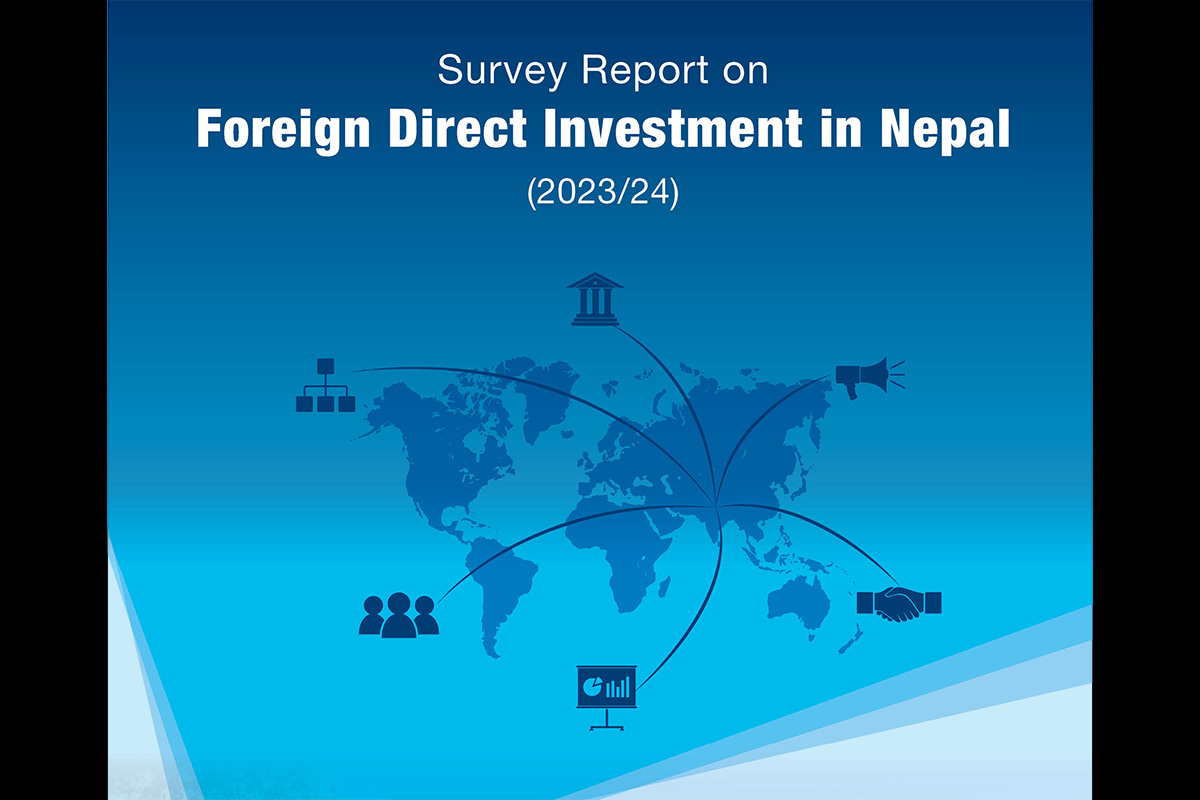
KATHMANDU: Nepal Rastra Bank’s Economic Research Department has released its annual report on foreign direct investment (FDI) for fiscal year 2023/24, showing solid growth despite global challenges.
Gross FDI inflows climbed 6.2% to Rs 8.5 billion, and net inflows jumped 36.1% to Rs 8.4 billion, reflecting stronger investor confidence and a smaller gap between approved and actual investment.
By mid-July 2024, the total FDI stock reached Rs 333 billion, up 12.7% over the previous year. Paid-up capital accounted for 50.7% of the total, reserves for 36.7%, and intra-company loans for 12.6%. This mix shows that investors are both reinvesting profits and putting in fresh equity.
Industry received 59.4% of the FDI stock, with hydropower projects alone taking 29.5% and manufacturing 29.3%. The service sector held 40.5%, led by finance and insurance (24.4%), information and communication (8.1%) and accommodation and food services (6.5%). This split underlines Nepal’s move towards both infrastructure and service-driven growth.
Regionally, Bagmati Province drew 62% of total FDI. Koshi and Gandaki followed with 13.5% and 13.1% respectively, while Lumbini and Karnali together attracted less than 1%, highlighting the challenge of spreading investment beyond Kathmandu Valley.
Investors came from 60 economies in 2023/24. India accounted for 32.3% of the FDI stock, China 10.2%, Singapore 8.3%, Ireland 7.0% and South Korea 6.1%. These five countries together provided over 64% of Nepal’s foreign capital.
Although Rs 69.8 billion in FDI commitments was approved—the highest on record—only 12.1% converted into actual inflows, continuing a long-standing trend in which just 31.9% of approvals turn into investments. The report urges simpler approval processes, better infrastructure and targeted policy reforms to speed up investment flows.
Foreign loans owed by FDI enterprises stood at Rs 59.9 billion by mid-July, with hydropower companies responsible for Rs 34.7 billion. Nepal’s overall external position also strengthened: foreign assets rose 34.8% to Rs 2.23 trillion and liabilities climbed 5.1% to Rs 1.92 trillion, leaving a positive net position of Rs 305.8 billion.
The survey report concludes that Nepal has made significant strides in attracting and retaining foreign investment. Continued administrative reforms, stronger legal frameworks and expanded infrastructure will be essential to sustain momentum and ensure balanced economic growth across all provinces.



-1769754921.jpeg)


